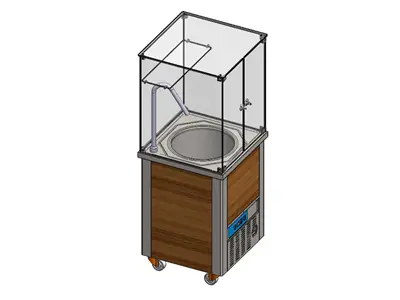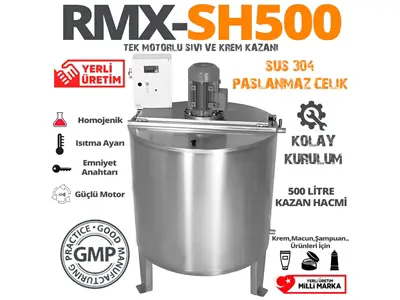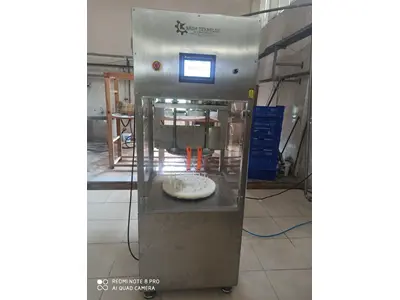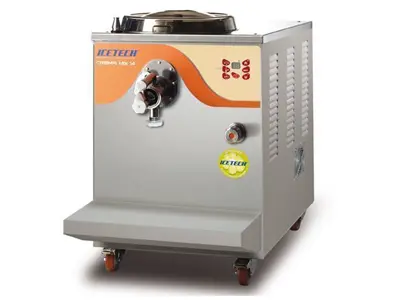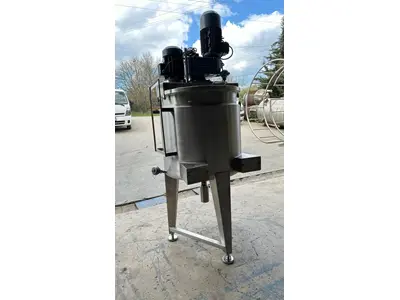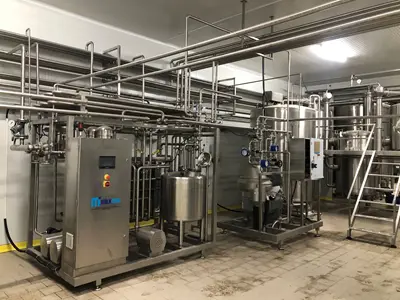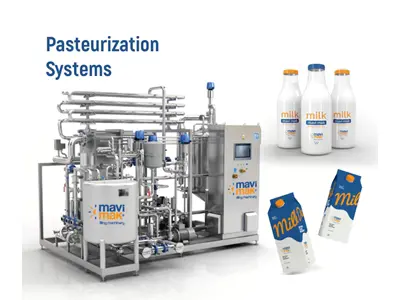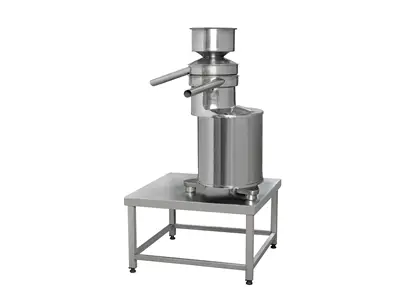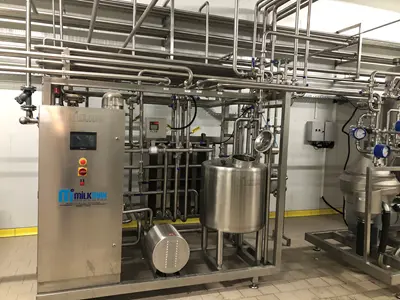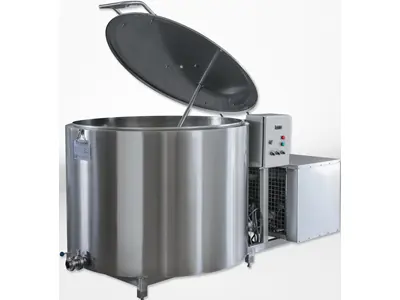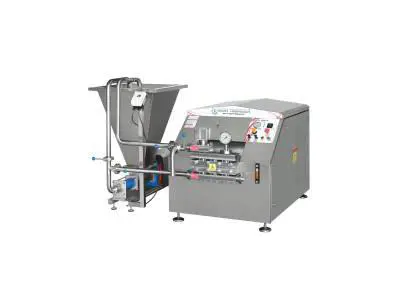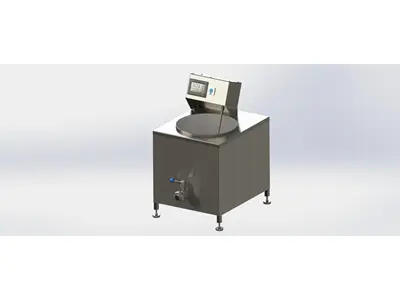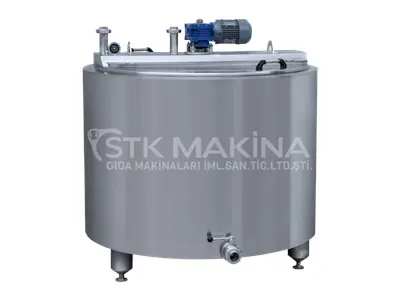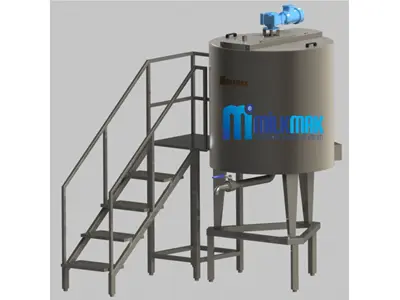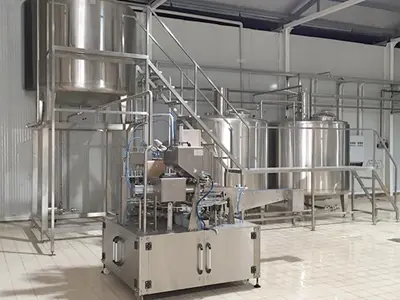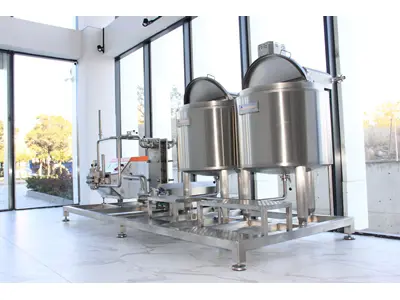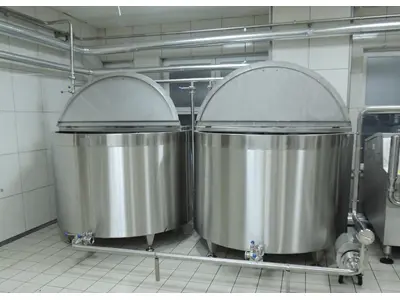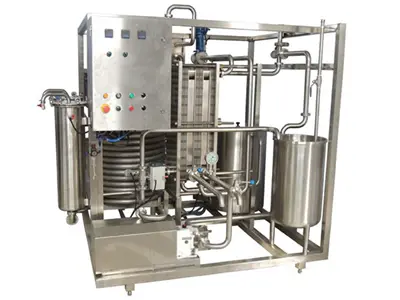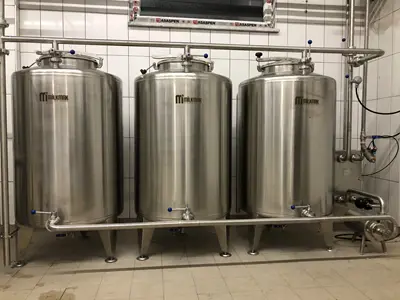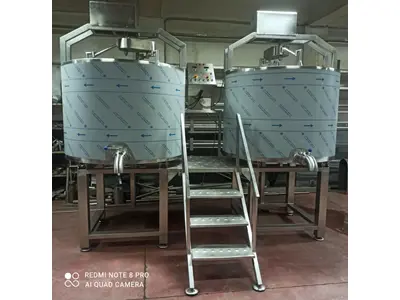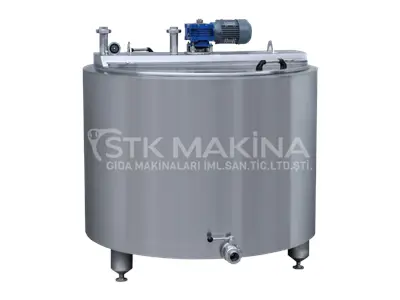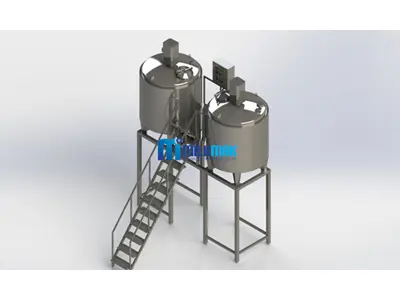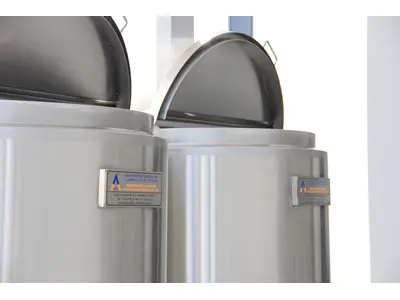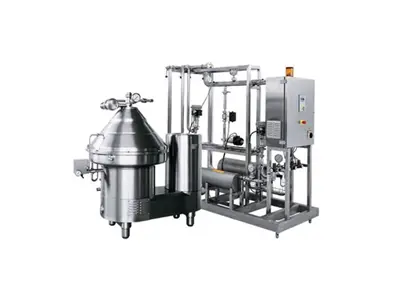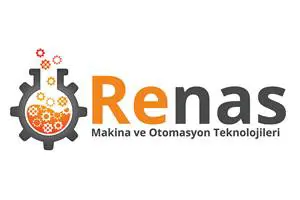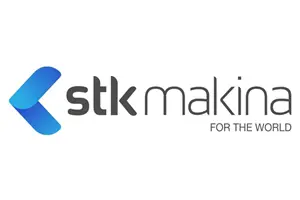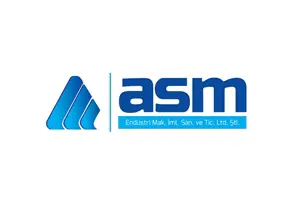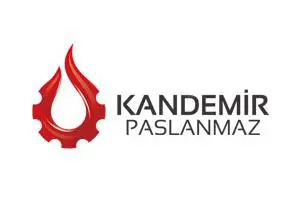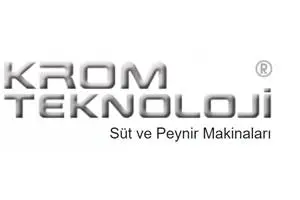What Is a Milk Processing Machine?
A milk machine is a device used to produce or process milk and dairy products. It is commonly used in industrial settings, but there are also home models available. Machines of various sizes and capacities are available for different types of use. Milk machines have some basic functions. The first function is to pasteurize the milk. Pasteurization is the process of heating milk to kill harmful bacteria and extend the shelf life of milk. These machines used in milk processing can perform processes such as homogenizing milk, separating cream, making yogurt, producing cheese, and transforming milk into different products. In the milk cooling stage, they are used to store or transport milk at the appropriate temperature. Milk collection involves automatic collection from milk cows or other milk-producing animals or a system where milk is manually collected.
These devices that help to carry out milk processing operations more efficiently and hygienically can be found in different types based on their usage goals and sizes. The use of milk machines is quite common in businesses involved in milk and dairy product production or among enthusiasts of milk processing at home.
Milk Products Machines
There are various types of milk products machines specially designed for producing or processing various milk products in dairy processing plants or for home use. These machines are used to make or process various milk products from milk. Here are some milk products machines and the type of products they are used to produce:
- Yogurt Machine
- Cheese Production Machine
- Cream Separation Machine
- Butter Making Machine
- Milk Powder Production Machine
- Ice Cream Machine:
- Strained Yogurt Machine
These machines are used in the dairy industry to facilitate the production of various products and provide automation. Each machine is designed to optimize the production processes of a specific milk product. When choosing milk products machines, production capacity, product diversity, and operational needs are taken into account.
Milk Processing Plants
Milk processing plants are places where milk and milk products are produced, processed, and packaged. These plants cover every stage from where milk is obtained in its raw form to being processed into final products through certain processes. Here are some main sections and processes generally found within milk processing plants. These include milk collection, which involves collecting milk from local farms or milk producers. Quality and hygiene of milk are important at this stage. Milk storage involves storing the collected milk temporarily in milk storage tanks. During this storage period, milk remains fresh due to its low temperature. Milk cleaning and filtering involve cleaning and filtering milk from impurities and foreign particles. Milk pasteurization involves subjecting milk to heat treatment to kill harmful bacteria and extend the shelf life of milk. Homogenization involves breaking down fat particles in milk into smaller sizes, making the milk creamier and the products more homogeneous. Packaging is done in the final stage. This process allows products to be prepared for transportation, storage, and sale. Finally, storage and distribution operations are carried out.
Milk processing machines ensure the production of milk and milk products in a quality, safe, and hygienic manner. These plants play a significant role in the dairy industry and offer various products to the milk products market. The equipment and processes used in the plant may vary depending on product diversity, capacity, and industry standards.
There are three important types of equipment used for processing and storing milk in milk processing plants: transfer tanks, cooking vats, and cooling tanks. These are:
- Transfer Tank: Used for transporting milk from farms or milk collection centers. These tanks are generally designed with high volume and insulation to help maintain the temperature of the milk. Milk transfer tanks are hygienically designed to minimize contamination risk during milk transport.
- Cooking Vat: Places where milk and milk products are subjected to heat treatment at specific temperatures or other processes. Milk pasteurization or UHT (Ultra High Temperature) treatment is carried out in these tanks. These processes help kill harmful microorganisms in the milk and extend the product's shelf life. Milk cooking tanks are equipped with special sensors and heating elements to control the temperature sensitively.
- Cooling Tank: Places where processed milk or milk products are rapidly cooled and stored. Milk cooling aims to keep the milk fresh and prevent microbial growth. Milk cooling tanks are usually insulated and equipped with special cooling systems to maintain low temperatures.
These equipment help maintain the quality and processing of milk and milk products in milk processing plants. Temperature and hygiene conditions are essential during the process, so the equipment is carefully designed and used. Additionally, these equipment can vary in size and capacity according to the needs of each plant.
Milk Machine Prices
The prices of milk machines can vary widely depending on a range of factors. Some factors that affect milk machine prices include:
- Capacity: Milk machines can have different capacities. Larger capacity machines are typically more expensive because they can process more milk.
- Functions: Some milk machines have basic functions while others can perform more processes. For example, machines that have special functions such as both milk pasteurization, homogenization, and cooling at the same time may be more expensive.
- Brand and Quality: Machines from well-known brands in the market may have higher price tags because the brand provides reliability in terms of quality and customer support.
- Industrial or Home Type: Milk processing machines can be designed for home use, small businesses, or industrial production purposes. Industrial machines may be larger, more functional, and more complex, and therefore, more expensive. Home types may be smaller and less functional, resulting in lower price ranges.
- Extras and Accessories: Some milk machines are sold with additional parts or accessories, which can affect the price. For example, a yogurt machine may be sold with yogurt containers, or a butter making machine may be sold with butter molds.
Prices depend on combinations of the above factors and can vary widely. To choose the most suitable one for your milk processing plant or personal use, it is important to carefully research and purchase milk machine prices.
